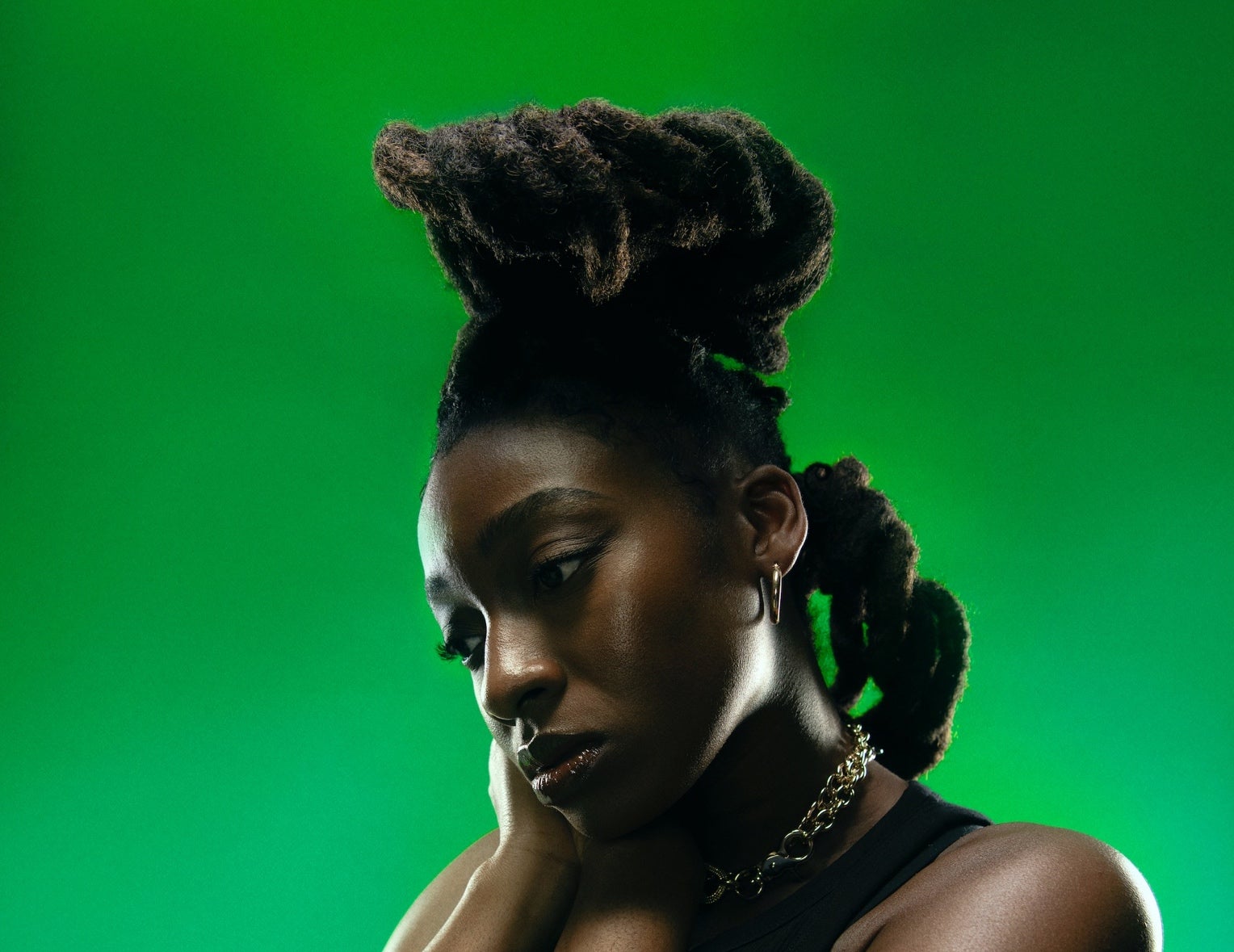How Little Simz found her way out of Wonderland
Following the release of Simz’s resplendent new album, Micha Frazer-Carroll explores how the 27-year-old artist no longer sounds disorientated by a confusing industry


Your support helps us to tell the story
From reproductive rights to climate change to Big Tech, The Independent is on the ground when the story is developing. Whether it's investigating the financials of Elon Musk's pro-Trump PAC or producing our latest documentary, 'The A Word', which shines a light on the American women fighting for reproductive rights, we know how important it is to parse out the facts from the messaging.
At such a critical moment in US history, we need reporters on the ground. Your donation allows us to keep sending journalists to speak to both sides of the story.
The Independent is trusted by Americans across the entire political spectrum. And unlike many other quality news outlets, we choose not to lock Americans out of our reporting and analysis with paywalls. We believe quality journalism should be available to everyone, paid for by those who can afford it.
Your support makes all the difference.Little Simz doesn’t hesitate to place herself alongside the greatest living rappers. This presented a problem for me as I tried to think of original ways to describe her newest album, Sometimes I Might Be Introvert. Her use of sampling feels very Late Registration-era Kanye, but her lyrics have already told us explicitly: “I think I'm Kanye West / I see the blood on the leaves.” Some of her poetry is comparable to Jay-Z, but on her last album, GREY Area, she assured us that she’s surpassed his lyricism: “I’m Jay-Z on a bad day / Shakespeare on my worst days.” But this signature confidence is part of what makes Little Simz (known as Simbi Ajikawo to family and friends) so exciting as an artist. She knows exactly how powerful her music is, and she’ll tell anyone who asks. In an Evening Standard interview last month, she earnestly explained: “Honestly, respectfully, I think I’m very, very talented.”
The now 27-year-old started out young, performing freestyles at her local youth club aged nine. She was 16 when she released her first mixtape. In the years that followed, the rapper amassed a cult following, and found herself a mainstay on ones-to-watch lists for the better part of the last decade. But it was GREY Area – which took on the theme of quarter-life crisis, with gorgeous orchestral production – that finally saw the artist gain widespread recognition. Now Sometimes I Might Be Introvert will undoubtedly cement her self-proclaimed position among the genre’s greats.
Produced by childhood friend Inflo, SIMBI reintroduces the dark symphony orchestra we heard on GREY Area. It's even stronger on this record; the full works with tinkling harps and a dramatic choir that strikes a tone somewhere between an opera and a James Bond film. Meanwhile, Simz’s lyricism is razor-sharp, as she tackles themes that are simultaneously more introspective, and more expansive, than ever before.
Unsurprisingly, the theme of introversion is a common thread throughout the album. As someone who also identifies with the personality type, I find it interesting to see Simz owning it in the public realm. Most celebrities don’t, choosing either to hide behind extroverted masks constructed for interviews and public appearances, or to craft elaborate alter egos to obscure their shyness, like Sasha Fierce or Sia. For Simz, not so much: although she acknowledges that she uses a stage name (“Simz the artist or Simbi the person?” she asks in the hauntingly anxious track “Introvert”), she brings her full self to this album.
In presenting herself to the world, Simz demonstrates a constant push and pull between her signature bravado and her inner neuroses, which are always lurking in the shadows. On “Introvert”, she tells us: “One day, I'm wordless, next day, I'm a wordsmith / Close to success, but to happiness, I'm the furthest.” On “Protect My Energy”, a bouncy electro-funk song about sinking into your own company, the lyrics counterintuitively chime: “Don’t call me / I don’t wanna speak / I got problems / But I ain’t f***ing weak.“
Of course, being introverted isn’t the same as being insular or self-involved. When I spoke to Simz last year, as she babysat her nephew, she told me how the pandemic had, in some ways, brought her closer to her family and friends. That sense of community is ever-present on this record. Simz’s sister, her mum and her wider family are close by in every single track. (Perhaps this should be expected of someone who brought her mum on stage at the NME awards, and on the cover of GQ.) Whole songs are also from the point of view of other people, such as “Little Q, Pt 2”, which details the stabbing of her cousin from his perspective.
Other parts of the album explore strained family dynamics, such as the devastating “I Love You, I Hate You”, which tackles Simz’s feelings towards her estranged dad. As someone who rarely ever cries at films, TV or music, I welled up at the lyrics, “Never thought my parent would give me my first heartbreak,” and, “Are you a sperm donor or a dad to me?” It feels more hard-hitting and vulnerable than anything Simz has written in the past. She confirmed in an interview with The Guardian earlier this year that discussing her and her father's relationship did pose a real emotional risk: “[I came up with] any excuse to not address it. I didn’t wanna go there.”
There are creative risks on the album too. Songs are punctuated by motivational interludes, voiced by none other than The Crown’s Emma Corrin. What’s most bizarre is the fact that Corrin delivers these monologues in the voice they used to play Princess Diana, which, over fantastical strings and glocks, creates a sort of fairy godmother feel. “They won't silence you but they'll try to / So follow your heart, it will guide you,” Corrin declares theatrically in a plummy royal accent. In the context of the rest of the album, which covers themes such as racism, violence and poverty, this choice is genuinely bizarre – a juxtaposition that pulls the rug right out from under you. But it also feels sort of nostalgic and personal. (Corrin is speaking to us as much as they are to Simz.)

Considering the artist’s personal struggles, and the fierce determination that has driven her since childhood, I read this fairy godmother character as Simz’s own motivating inner voice. There is something a little bit introverted about this, too, reflected in Corrin’s words: “Your introversion led you here / Intuition protected you along the way.” Although the device feels a little cliched at times, it ultimately works with the orchestral drama to give the impression that Simz’s life is a tale of epic proportions, fit for its own opera. That is no small feat. In fact, it’s that sense of grandiosity that artists like Kanye West are currently chasing after, but failing to pull off. (Have a go at last month’s release, Donda, and see for yourself).
On Simz’s first two albums, she referred again and again to the story of Alice in Wonderland. A newcomer to the formal structures of the music world, she had followed the White Rabbit into a nonsensical land of fame and industry politics, and was navigating her way around this bewildering landscape. While there is one nod to the tale in Sometimes I Might Be Introvert, the shift to the fairy godmother motif tells us something significant about Simz’s position – and how she sees herself – in 2021. While she still has her own doubts and demons, it seems as if she is no longer lost and disorientated in the industry. Quite the opposite. This album feels masterful, proving Simz has finally gained her bearings, to reach her fullest form.



Join our commenting forum
Join thought-provoking conversations, follow other Independent readers and see their replies
Comments